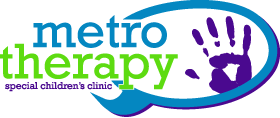Summer 2021 Newsletter
Summer schedule changes
Summer is right around the corner! If you need to change your schedule, please contact us as soon as possible. We also appreciate advance notice about travel plans so we can staff accordingly or use those appointment times for make-up sessions for other clients.
Clinic Closures
Our clinic will be closed on May 31 in observance of Memorial Day, July 5 in observance of July 4th, and September 6 in observance of Labor Day
Teletherapy
We are still offering teletherapy on an ongoing basis for some clients and on an as-needed basis for special circumstances such as needing to quarantine or transportation issues. Please note, due to licensing rules we cannot treat via teletherapy if you are out of state. Please contact us to cancel and reschedule your session if you will be traveling out of state.
Summer Kick-off Theme Week
Because we want to continue to do our part in limiting the spread of COVID-19, we unfortunately will not be able to hold our annual party in the park again this year. Fingers crossed for next summer! However, we are still going to have some fun in the clinic to kick off the summer. The week of June 21-25 will be a theme week including special activities, prizes, and dress-up days. Be on the lookout for more detailed information as the week gets closer.
Like and Follow us on Facebook
Did you know Metro Therapy is on Facebook? Like and follow our page for important updates such as weather closures, fun photos of therapy in action, announcements about upcoming events and community activities, and useful information about topics related to speech and occupational therapy. You can also learn more about our staff as we feature one team member per month in a series of posts.
Student Clinicians
Metro Therapy is proud to contribute the education of future therapists by accepting students to complete practicums at our site. This summer we will have two SLP students working with us, each completing a 6-week rotation. Student clinicians work alongside and are closely supervised by our therapists to ensure a quality educational experience for the student and continuity of treatment for our clients.
Continuing Education
Jessica Paredes completed the course Self-Regulation Interventions for Children & Adolescents: Reduce Frustration, Emotional Outbursts & Oppositional Behaviors
Sarah Hetz completed the course Clinical Assessment of Narrative Skills
Childhood Trauma and Occupational Therapy
WHAT IS CHILDHOOD TRAUMA? Trauma exposure activates fight, flight, or freeze stress reactions, the human response to experiences of overwhelming stress. Most children exposed to an isolated traumatic event will recover in time. However, exposure to chronic interpersonal trauma (i.e., child maltreatment) results in complex trauma, a condition that adversely affects virtually every aspect of development.
What do Occupational Therapy Practitioners do? Help clients identify therapeutic needs, goals, and activities and strategies supporting participation, resiliency, and the recovery process. As part of the occupational therapy intervention process, a variety of activities, coping techniques, and environmental supports are identified that may be used to help prevent, manage, or release the symptoms of stress, trauma, and posttraumatic stress, supporting safety, stabilization, and participation.
Some areas that are addressed during treatment:
Social/Emotional: The biggest impact of trauma on a child is their inability to self-regulate. A child who has experienced trauma may also have increased anxiety, limited positive coping skills, and difficulties with social skills and overall communication (van der Kolk, 2003).
Sensory: Children who have experienced trauma may have difficulties with sensory processing. They may be hypervigilant to touch or sounds, and may have difficulty with localization of sensation. These children may also have visual perceptual issues and overall sensory sensitivity (National Child Traumatic Stress Network, 2003).
Sense of Self/Control: After a child has experienced a traumatic experience, especially if it was chronic, it’s possible they will feel they don’t know their identity (van der Kolk, 2003). This is known as lack of self-concept. They may have low self-esteem and have difficulty discerning appropriate boundaries (Child Traumatic Stress Network, 2003).
American Journal of Occupational Therapy, August 2018, Vol. 72, 7212410080. https://doi.org/10.5014/ajot.2018.72S208
